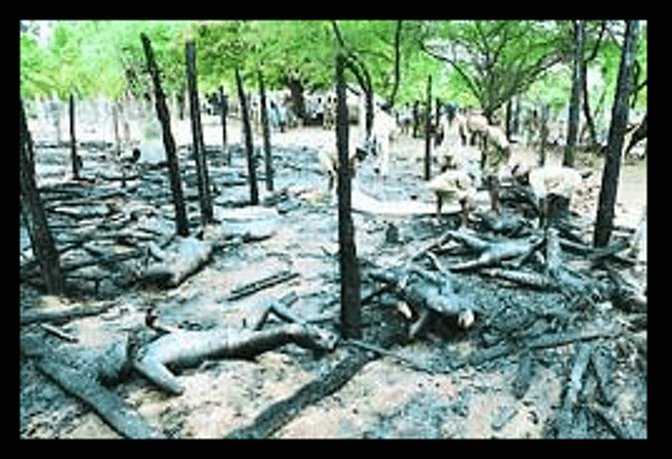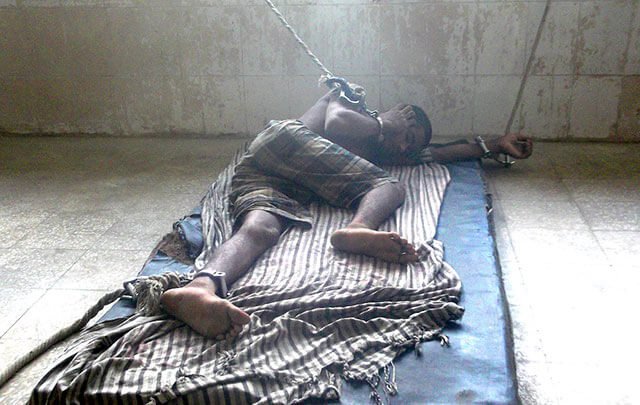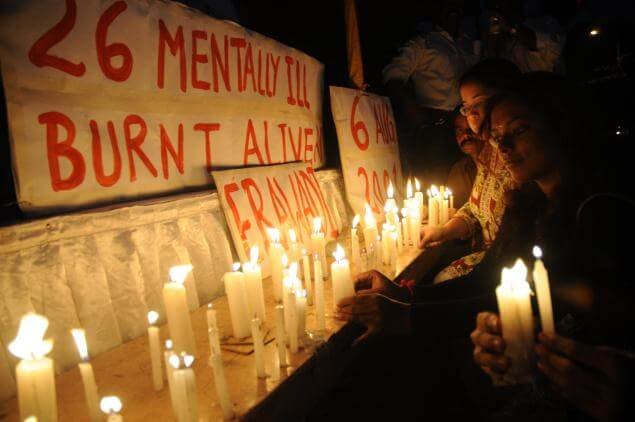The treatment of mental patients in India has always been a point of major discontent and friction. A combination of ignorance, close-mindedness and lack of information has resulted in a situation wherein a very small part of the population really understands mental illness, while a relatively large part of the population suffers from it. In the old days, it was treated according to the teachings of various religious leaders, a practise that has, perplexingly enough, carried on to this day, and had some disastrous consequences in the process.
On this day in 2001, the Moideen Badusha Mental Home in Erwadi Village in Tamil Nadu was witness to a devastating fire that left 28 patients (or inmates) dead. They couldn’t escape due to the draconian rules of the place that command iron shackles for all inmates.

Erwadi was famous for the dargah of Quthbus Sultan Syed Ibrahim Shaheed Valiyullah from Medina, Saudi Arabia who came to India to propagate Islam. It was known for being home to a large number of mental homes that used superstitious belief rather than science in the healing of patients. They used things like holy water from the Dargah and oil from burning lamps in their healing efforts.
Frequent canings and beatings were employed to ‘drive away the evil’ while the patients were tied to trees or shackled to their beds. They were expected to await a divine commandment in their dreams to go home, something that could take years.

On 6 August 2001, there was an accident, and 28 of these unfortunate patients died in a fire, unable to escape due to their chains. Around a week later, all of these mental homes were closed and more than 500 inmates were taken under government care.

It’s heartbreaking to see the kind of treatment some of the most vulnerable parts of our society receive. The mentally ill need real medicine along with a good amount of general empathy, not the laughable prescription of a superstitious faffer. Let’s hope things change.

















